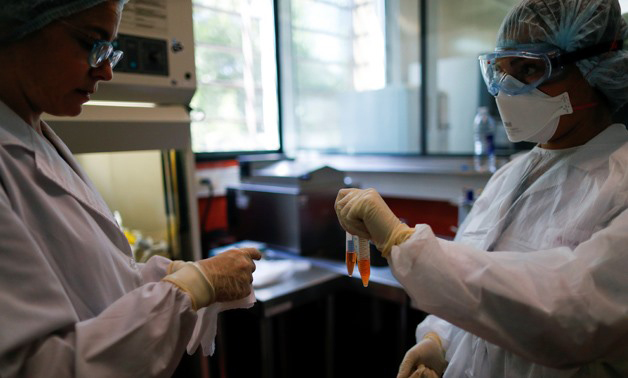The World Health Organization said Egypt’s strong coronavirus surveillance system and contact tracing efforts have proved effective in controlling and managing sporadic and clusters of cases before they can spread,” but that further efforts are needed, according to Ahram Online on Friday.
A team of experts from the organisation on Wednesday concluded a technical support mission to identify the current situation of the disease in Egypt and review ongoing response activities by the government. This involved a series of meetings and field visits to Cairo and other governorates.
“We see that Egypt is making substantial efforts to control COVID-19 outbreak. Significant work is being done, especially in the areas of early detection, laboratory testing, isolation, contact tracing and referral of patients,” said Yvan Hutin, director for communicable diseases in WHO’s Regional Office for the Eastern Mediterranean and mission team lead.
“But more needs to be done,” he added, in a report published Thursday.
“There is now a critical window of opportunity to effectively control the outbreak before the current local transmission progresses to community transmission,” Hutin said.
“We have agreed on several areas that can be scaled up, taking a whole-of-government and whole-of-society approach.”
Egypt has registered 495 coronavirus cases so far, including 24 fatalities.
The UN body hailed progress made by Egyptian health authorities in expanding the number of peripheral laboratories that can test for the coronavirus.
Health Minister Hala Zayed said earlier this week that 21 laboratories across the country can now test for the virus, with plans to increase that number to 27 to cover each of the country’s 27 governorates. University laboratories will also be involved in the process.
Egypt now has the capacity to conduct up to 200,000 tests, according to the WHO report.
WHO said it will work with Egyptian health authorities to enhance the isolation, quarantine and referral mechanisms in the country. It will also help scale up infection prevention and control practices to “prevent transmission at all levels to ensure that patients and health workers are protected.”
Egyptian authorities have made “significant efforts” to ensure the public is updated on the current situation, WHO said. Greater cooperation with civil society groups and the media will help “ensure the public is able to make informed decisions, without succumbing to mistrust and the stigma associated with the disease,” it added.


